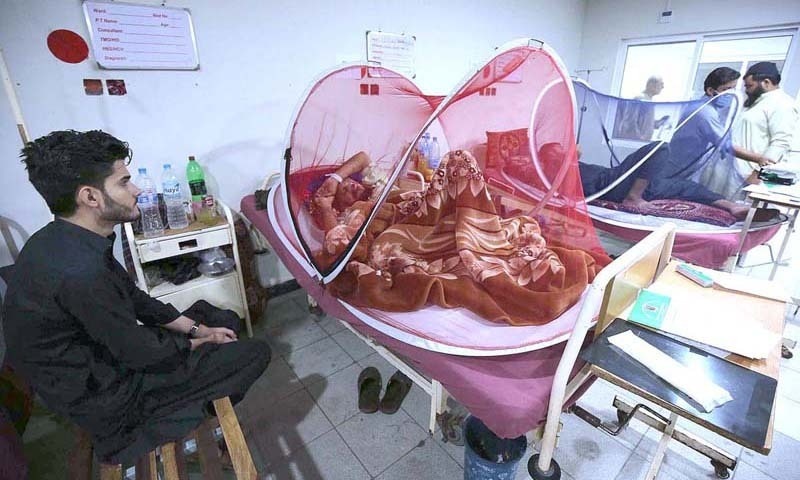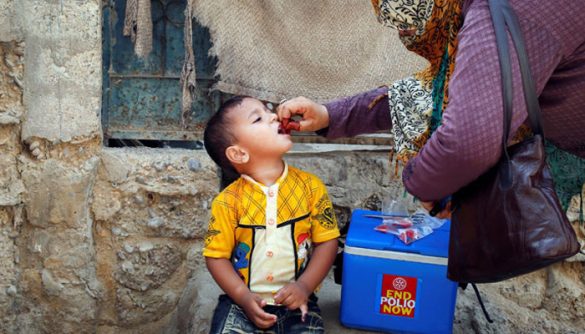Rising Number of Infections in Swabi
Health authorities in Pakistan’s northwestern district of Swabi have reported a sharp increase in dengue cases, with more than 100 people infected in recent weeks. The outbreak, concentrated in several localities, has raised concerns among residents and put additional strain on the region’s already stretched health system.
According to official figures, cases have been confirmed in neighborhoods of Topi tehsil, including Mohallah Botkha, Azad Khel, and Swatyan. Medical staff say both adults and children are among the patients, highlighting the widespread nature of the outbreak.
Hospitals at Capacity
The Bacha Khan Medical Complex (BMC), one of the largest healthcare facilities in Swabi, confirmed that eight patients are currently admitted with dengue-related complications. Meanwhile, the 12-bed dengue ward at Tehsil Headquarters Hospital in Topi has already reached full capacity.
Doctors have expressed concern that if cases continue to rise, hospitals may struggle to accommodate new patients. Emergency wards are on high alert, and local authorities are working to allocate additional resources.
Calls for Preventive Measures
Medical officials at BMC have appealed to residents to take preventive steps to curb the spread of the mosquito-borne virus. They advised households to ensure that stagnant water does not accumulate in and around homes, as such conditions create ideal breeding grounds for Aedes aegypti mosquitoes, the primary carriers of dengue.
Citizens have also been urged to use mosquito nets, repellents, and cover water containers. Community awareness campaigns are being launched to encourage collective action against the spread of the disease.
Dengue and Seasonal Outbreaks in Pakistan
Dengue fever, a viral infection transmitted by mosquitoes, typically spreads during and after the monsoon season when standing water becomes common. Symptoms include high fever, severe headaches, muscle and joint pain, nausea, and in some cases, internal bleeding.
Pakistan has faced recurring dengue outbreaks over the past decade. According to the National Institute of Health (NIH), thousands of cases are recorded annually, with Khyber Pakhtunkhwa, Punjab, and Sindh provinces often among the worst affected. In 2022, the country reported over 75,000 cases nationwide, with hundreds of fatalities, making dengue a persistent public health challenge.
Impact on Swabi and Khyber Pakhtunkhwa
In Swabi, recent heavy rains have worsened the problem by creating pools of stagnant water in both urban and rural areas. Health experts say poor drainage systems and limited public health infrastructure are aggravating the outbreak.
Officials have warned that if the current weather patterns continue, the number of cases could rise sharply in September and October, the peak dengue season in Pakistan. The provincial health department is closely monitoring the situation and has deployed teams to fumigate high-risk areas.
Pressure on Healthcare Facilities
The growing number of patients is adding pressure to healthcare facilities that were already dealing with post-monsoon illnesses such as malaria, diarrhea, and respiratory infections. Rural areas, where medical resources are limited, are particularly vulnerable.
Doctors in Swabi have called for immediate government support, including additional beds, rapid diagnostic kits, and emergency medicines. Without timely intervention, they warn, the outbreak could escalate into a wider health crisis.
A Community Responsibility
Public health experts emphasize that tackling dengue requires both government-led action and community cooperation. While hospitals continue to treat patients, preventing further spread depends largely on eliminating mosquito breeding grounds.
Residents in Swabi are being reminded that small steps — such as covering water tanks, clearing rooftops, and cleaning household surroundings — can play a major role in controlling the outbreak.















